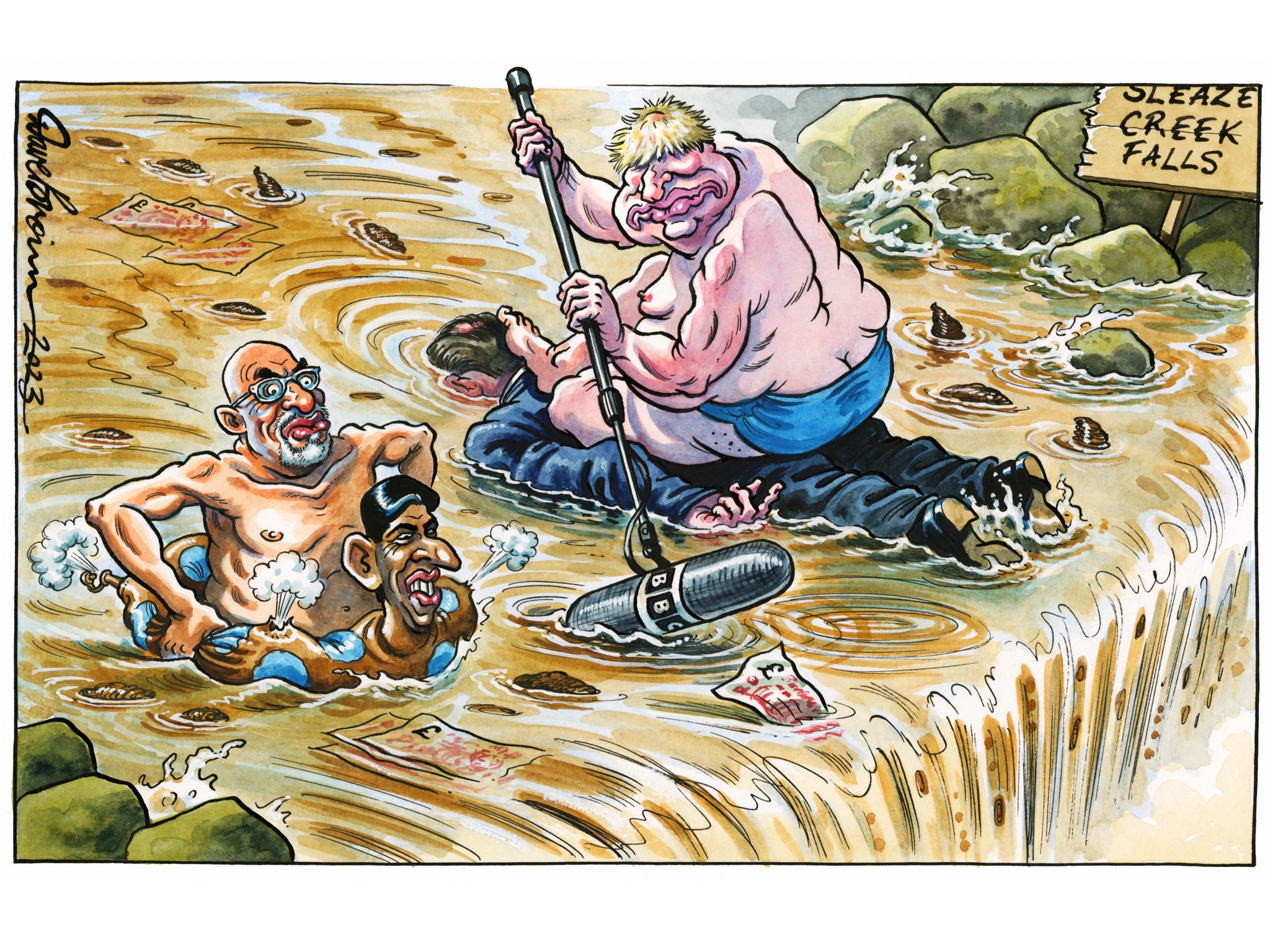It is time for Rishi Sunak to show his ruthless side
Editorial: Rishi Sunak needs to be very clear about when and whether he knew about Nadhim Zahawi’s tax affairs – and he needs to do it before much more damage is done

Never waste a good crisis” goes the old political dictum; sometimes attributed to Winston Churchill, sometimes to Machiavelli, sometimes to Mark Twain.
Wherever it originated, it seems the best advice for Rishi Sunak in his present predicament. The Zahawi scandal – for that is what it amounts to – is draining credibility from Mr Sunak’s government, damaging his party and further eroding the early goodwill Mr Sunak enjoyed when he became prime minister only three months ago.
As the details of Mr Zahawi’s tax affairs seep messily into the public domain, and his previous public statements and details come under uncomfortable scrutiny, Mr Sunak’s approval ratings – once one of the few positive signs of hope for the Tories – sink still further.
So Mr Sunak would be well advised to ask (rather forcefully) Mr Zahawi to stand aside, at least until the inquiry by the independent adviser on the ministerial code, Sir Laurie Magnus, has completed his work.
Caroline Nokes, an independent-minded and respected MP and chair of the equalities select committee, has openly called for Mr Zahawi to stand back from his ministerial and party work until matters are clarified, and it seems an eminently reasonable suggestion. Indeed, it is now imperative for Mr Sunak to stamp his authority on his own administration. There would be little objection from Mr Zahawi’s colleagues or the public if he recused himself for the time being.
Above all, from Mr Sunak’s point of view, it would demonstrate some much-needed decisiveness and the kind of strong leadership that the voters expect. They are appalled – and rightly so – by the spectacle of a man Mr Zahawi, who has been effectively fined by HM Revenue and Customs for not paying his taxes on time and correctly, being protected and indulged by Mr Sunak, whose wife enjoyed non-dom status entirely without the knowledge of the public. Money and politics usually don’t mix well, and in this case the cocktail is particularly toxic.
In truth, Mr Sunak should have dropped Mr Zahawi long, long ago. In fact, Mr Zahawi was damaged goods from the moment The Independent broke the story last July about how he had been (and was being) investigated by the National Crime Agency, Serious Fraud Office and HMRC (though nothing came of the NCA and SFO processes).
It is said that the principle of “innocent until proven guilty” applies to Mr Zahawi, as in so many walks of life. However, politics is a rough old trade, and the best way for any prime minister to deal with a nascent scandal is to fire the MP or minister after a brief review of their case. Prime ministers who attempt to defend the indefensible usually end up losing both the hapless minister at the centre of some storm, and much of their own political capital.
There are plenty of examples to prove the point: John Major’s administration suffered from this defensive knee-jerk reaction to scandal; and more recently Boris Johnson’s time in No 10 was finally brought to an inglorious end after his futile attempts to protect Owen Paterson and Chris Pincher. By contrast, Tony Blair and Margaret Thatcher preferred to put the interests of government and party first, both projecting an image of “right or wrong, but strong”. It is time for Rishi to show his ruthless side.
Mr Sunak, then, should never have had Mr Zahawi in his government; and certainly not as soon as he became aware that Mr Zahawi had so mishandled his tax obligations that he was subject to punitive action by HMRC, to the tune of around £1m on top of a £3.8m late tax liability, on an apparent capital gain of £27m. These are not trifling sums, and the offence wasn’t trivial either. Far from it. It also, reportedly, prevented Mr Zahawi from becoming Sir Nadhim Zahawi in the last new years honours. It ought to have disqualified him from office; and possibly even from being an MP.
When did Mr Sunak know? Arguably at the moment The Independent published its robust story. If that was not clear enough, then we have Mr Zahawi’s own statement. It indicates that he was penalised by HMRC and the tax bill was settled by the time of his appointment to Mr Sunak’s cabinet, and in fact when he was being appointed by Mr Johnson: “When I was being appointed chancellor of the exchequer, questions were being raised about my tax affairs. I discussed this with the Cabinet Office at the time…”
The central question, therefore, for Mr Sunak is whether and when his own Cabinet Office civil servants informed him about these discussions and the penalty imposed by HMRC for breach of the rules. Was it before Mr Sunak gave Mr Zahawi a cabinet position? Mr Sunak needs to be very clear about that, and he needs to do it soon before much more damage is done – not least because Keir Starmer is entitled to ask for answers at Prime Minister’s Questions, and it may well emerge in Sir Laurie’s report.
Meanwhile, Mr Zahawi must step back. The sooner he does so, the sooner this crisis will pass. But much damage has already been done.
Join our commenting forum
Join thought-provoking conversations, follow other Independent readers and see their replies
Comments
Bookmark popover
Removed from bookmarks